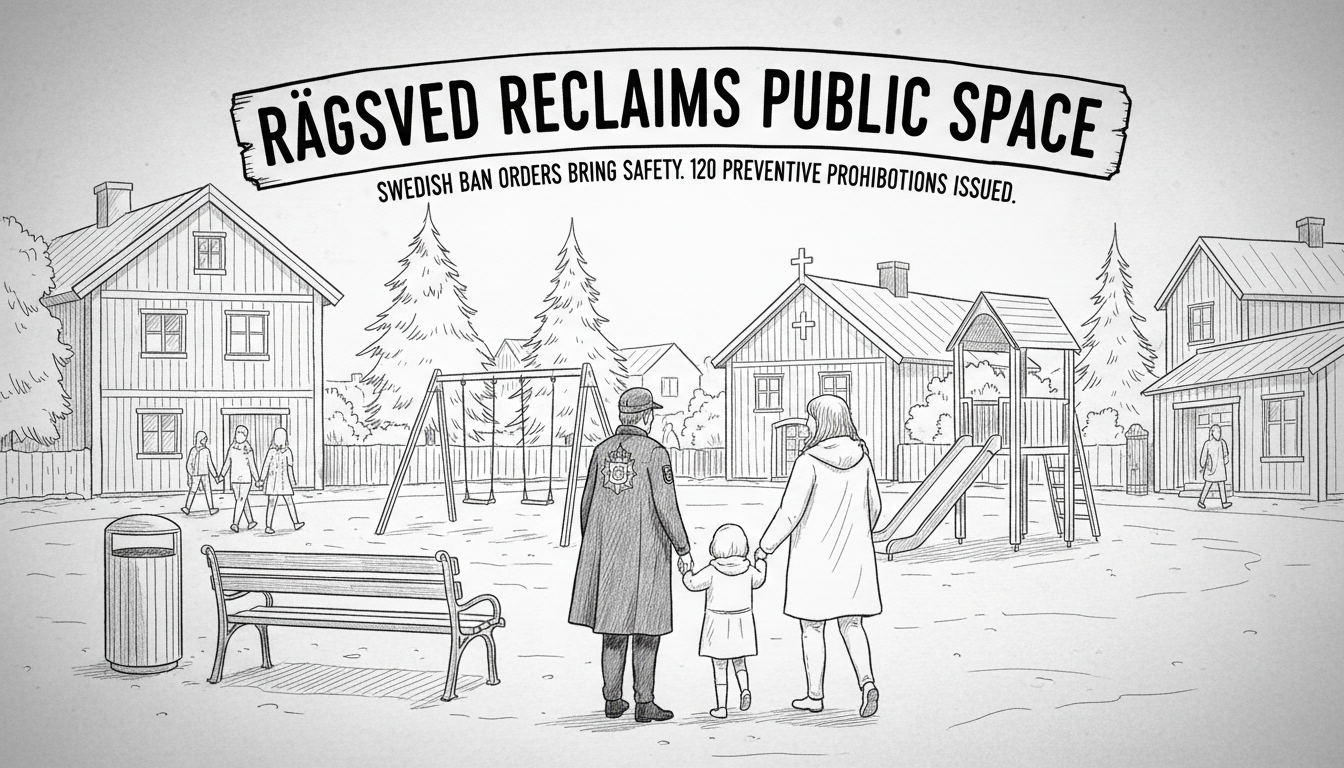Swedish ban orders reclaim public spaces from gangs
Sweden's new ban orders help reclaim public spaces from gang activity. Residents in suburbs like Rågsved report major improvements in safety. Police have issued 120 preventive bans since the law took effect.

Drug dealers once operated openly near local bakeries and town centers across Swedish suburbs. Residents felt unsafe in their own neighborhoods. A new law changed that reality.
Sweden introduced preventive ban orders in February 2024. Police can now prohibit suspected criminals from entering specific areas. The measure targets gang activity in public spaces.
Rågsved, a Stockholm suburb, shows how the law works. The local bakery's large windows face the main walkway. Until recently, teenagers occupied the area from afternoon until late evening. They terrified local residents.
Store owners notice the difference. One shopkeeper in Rågsved described the transformation. "If you asked me a few years ago, I would have said it was chaos. But now it's much better," the business owner said.
Police statistics confirm the trend. Authorities issued 120 preventive ban orders since the law took effect. 117 remained active as of September 2025. Most bans cover central and southern Sweden.
Andreas Lundberg works as operational coordinator for local police in Farsta. He explained the current situation. "Drug sales haven't stopped completely in Rågsved. But they no longer happen in places everyone passes on their way to school or the subway," Lundberg said in a statement.
Rågsved now serves as a success story for Sweden's anti-gang efforts. The open drug scene practically disappeared from the suburb's center. Residents feel they regained their public spaces.
The ban orders represent a practical approach to a complex problem. Police focus on visible crime rather than attempting complete eradication. This strategy acknowledges reality while improving daily life for ordinary citizens.